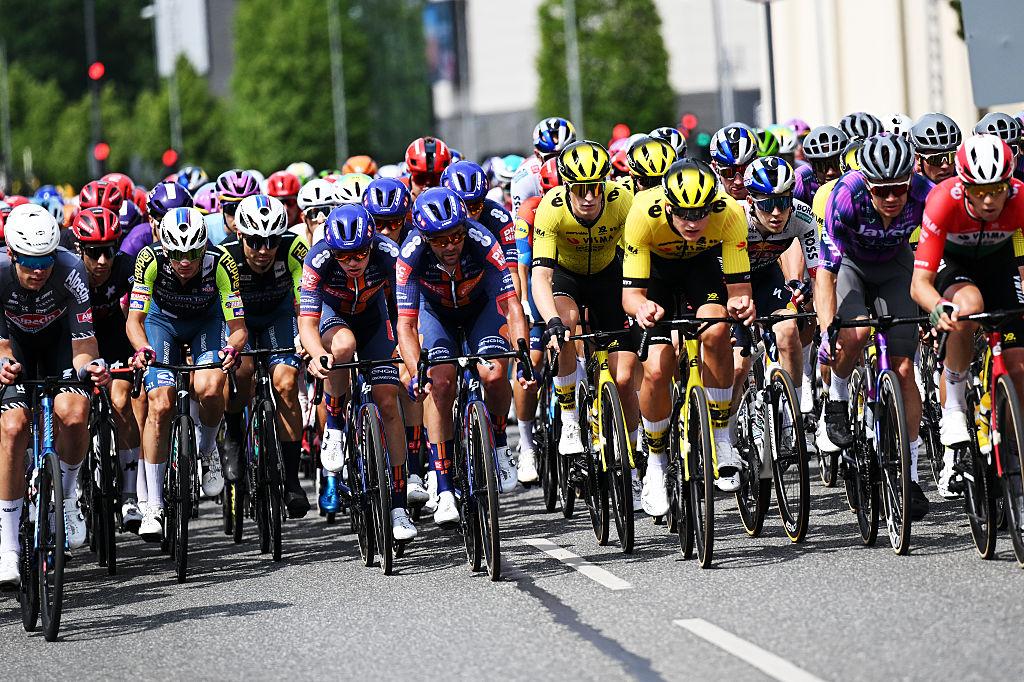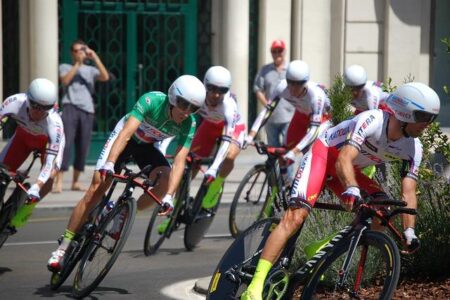In a significant move that could reshape the landscape of competitive cycling, the Union Cycliste Internationale (UCI) has announced plans to test new gear restrictions in a series of events set for 2025. This decision comes amid growing concerns over the impact of advanced technologies on the fairness and integrity of the sport. The test event will serve as a crucial platform for evaluating proposed limitations on equipment used by professional cyclists, with the aim of ensuring a more level playing field in races. As cycling continues to evolve with innovations in materials and design, the UCI’s initiative reflects an urgent call for balance between technological advancement and traditional competition values. Cyclists, teams, and industry stakeholders are closely watching these developments, which promise to set important precedents for the future of cycling gear regulations.
Pro Cyclist Gear Restrictions Under Review as UCI Announces Testing Phase in 2025
The Union Cycliste Internationale (UCI) has officially announced a testing phase for proposed restrictions on gear used by professional cyclists, set to take place in 2025. This initiative aims to address growing concerns surrounding technological advancements in cycling equipment, which some critics argue give unfair advantages to certain competitors. The testing phase will involve a series of competitive events where modified gear regulations will be implemented and evaluated. The UCI believes this will create a more level playing field in professional cycling while also maintaining the spirit of the sport.
As part of the review process, the UCI has outlined key areas that will be scrutinized during the testing events, including:
- Aerodynamic helmets – assessing the impact of design changes on performance.
- Bike weight limits – evaluating how reduced weight influences racing dynamics.
- Electronic gear shifting – determining if it offers a competitive advantage.
- Materials used in bike frames – exploring the effects of high-tech materials on racing.
Data collected during this period will be critical in shaping future regulations and ensuring fair competition among elite cyclists. Enthusiasts and stakeholders within the cycling community have expressed mixed reactions, with some praising the initiative for promoting equity, while others fear it may stifle innovation in gear technology.
Insights into the Implications for Competitive Racing and Athlete Performance
The upcoming test of pro cyclist gear restrictions is poised to reshape competitive racing as we know it. By implementing standardized equipment regulations, the UCI aims to level the playing field, which may have far-reaching effects on athlete performance. Some potential implications include:
- Enhanced Safety: Stricter gear regulations could lead to improvements in safety features, reducing the likelihood of equipment-related accidents.
- Focus on Skill: With restrictions on technology and gear, the emphasis may shift towards cyclist skill and strategy rather than relying solely on advanced equipment.
- Increased Equity: Ensuring all athletes have access to similar gear could lead to a more equitable competitive environment, encouraging greater participation.
However, the adjustments may also challenge athletes in their pursuit of speed and performance. As regulations come into play, athletes will need to adapt to new standardization, which could alter traditional training methods. Key considerations include:
- Innovation Slowdown: With the boundaries of technological advancement more tightly controlled, the rapid evolution of bike technology may be hindered.
- Potential for Resistance: Established teams and sponsors might resist changes that impact gear investments, leading to friction within the sport.
- Athletes’ Adaptation: Riders will need to recalibrate their strategies based on limitations in gear capabilities, which could evoke a new era of competitive tactics.
Recommendations for Teams to Adapt and Prepare for Upcoming Regulatory Changes
As the pro cycling landscape prepares for imminent gear restrictions set to be tested in 2025, teams must proactively adapt their strategies to stay ahead of regulatory changes. Key recommendations for teams include:
- Investing in Research and Development: Allocate resources to explore innovative gear that complies with upcoming regulations, ensuring that performance is maintained without contravening new rules.
- Engaging with Regulatory Bodies: Establish open lines of communication with the UCI and other relevant organizations to stay informed about regulatory updates and participate in discussions that shape the future of cycling.
- Training and Education: Implement training programs for team members to familiarize them with new regulations and encourage a culture of compliance that prioritizes both ethics and performance.
Additionally, teams should conduct thorough assessments of their current equipment and techniques to identify potential risks or challenges posed by the new rules. A comprehensive review can help teams strategize effectively, creating a roadmap to navigate upcoming changes. Below is a simple framework for a compliance strategy:
| Focus Area | Action Steps |
|---|---|
| Equipment Review | Conduct inventory and assess compliance. |
| Team Communication | Hold regular meetings to discuss updates. |
| Performance Monitoring | Implement systems to track compliance and performance metrics. |
In Summary
As the cycling world gears up for the unprecedented test of pro cyclist gear restrictions in 2025, the UCI’s announcement marks a pivotal moment in the sport’s evolution. Athletes and teams will be closely scrutinizing the implications of these changes, which aim to enhance competition integrity and athlete safety. As discussions intensify and preparations unfold, stakeholders from all corners of the cycling community are keenly awaiting the outcomes of the forthcoming test event. With the potential to reshape the landscape of professional cycling, this initiative underscores the UCI’s commitment to balancing innovation with fairness in the sport. As 2025 approaches, all eyes will be on the test event, where the future of pro cycling could be determined, setting a precedent for years to come.











